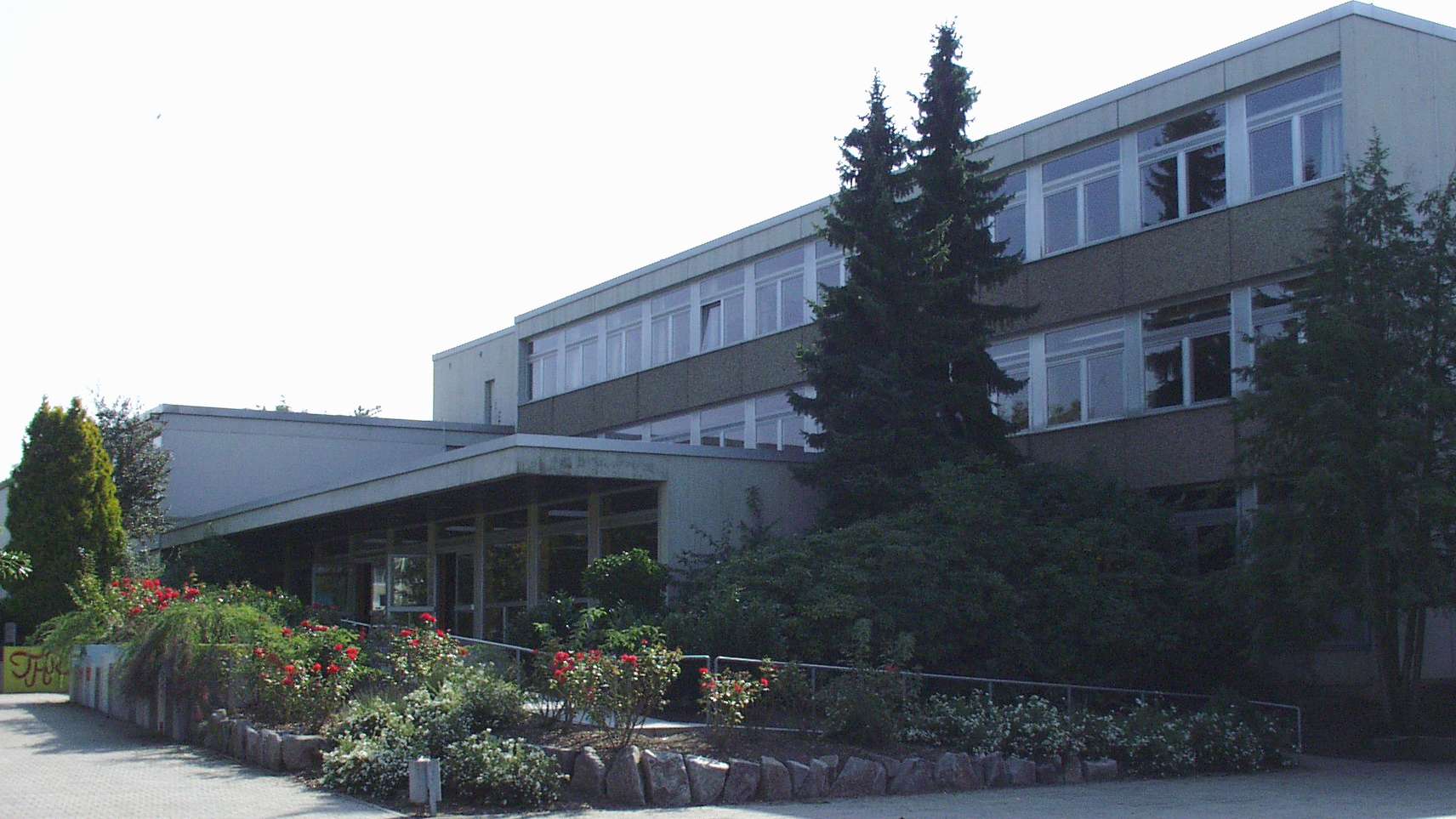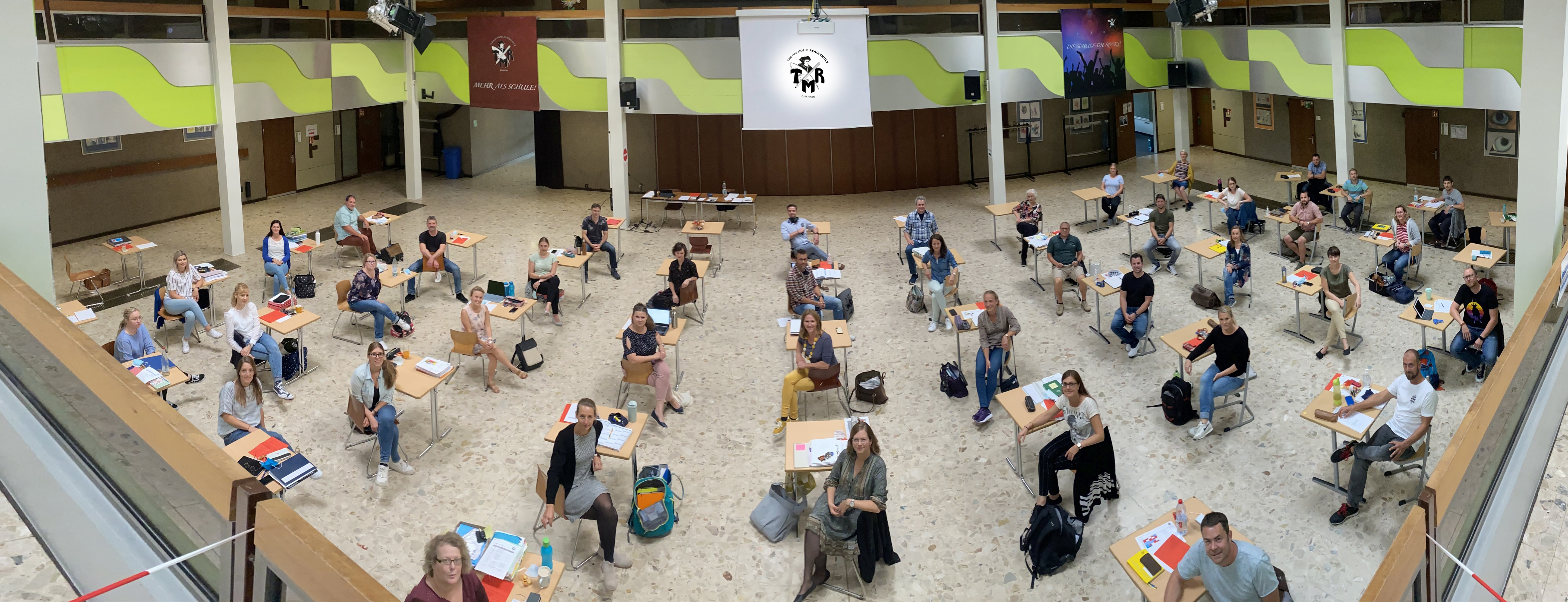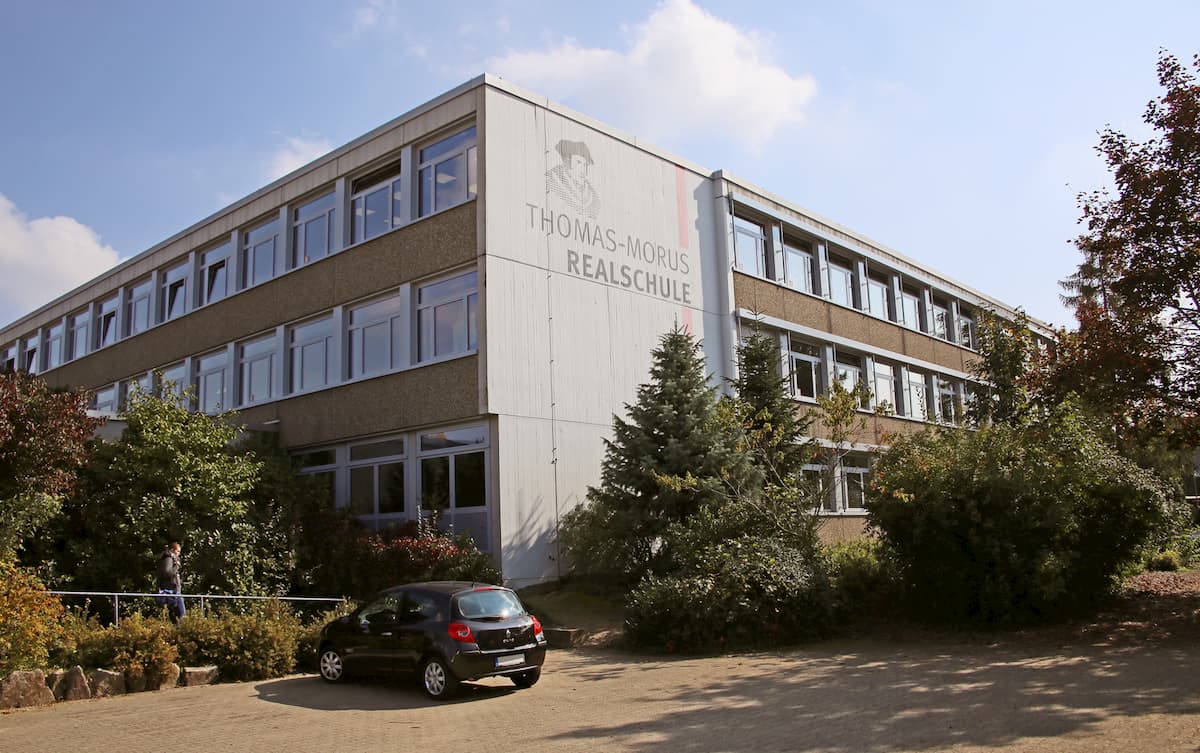Thomas Morus Realschule Östringen: What We Found!
Ever felt like your search yielded nothing but digital tumbleweeds? You're not alone, and the reasons behind a search's failure are far more complex than a simple typo.
The digital landscape is littered with searches that come up empty, queries that vanish into the ether, leaving users frustrated and empty-handed. "We did not find results for:" – a phrase that echoes the futility of countless online expeditions. More often than not, the knee-jerk reaction is to double-check the spelling, a process ingrained in our digital habits. "Check spelling or type a new query." This seemingly simple suggestion masks a world of intricate algorithms and semantic nuances. But what happens when spelling isn't the issue? When the information exists, but the search engine, for whatever reason, fails to retrieve it?
Consider the challenges faced by educational institutions, for instance. The implementation of new schedules and structures within schools can be a logistical nightmare, requiring precise communication and coordination. Imagine a scenario where a school announces a new timetable: "Neues stundenraster und neuer stundenplan ab montag, dem 05.10.2020 vom 01.10.2020." (New timetable and new schedule from Monday, October 5th, 2020, from October 1st, 2020). Now, if a parent or student searches for this specific announcement using keywords that deviate slightly from the official wording, they might encounter the dreaded "no results" message. The information exists, it's relevant, but it remains elusive due to the limitations of search algorithms.
- Unveiling The Political Compass Of Patrick Warburton
- Unveiling Candace Nelsons Height Discoveries And Insights Await
The situation becomes even more complex when dealing with institutions like the Thomas Morus Realschule in Östringen. "Thomas morus realschule mozartstraße 1d 76684 \u00f6stringen telefonnummer:" (Thomas Morus Realschule, Mozartstrasse 1d, 76684 Östringen, phone number) – a seemingly straightforward query. Yet, a search might fail if the user omits the street address, misspells "Mozartstrasse," or even enters the postal code incorrectly. Each variation, however minor, can lead to a dead end, highlighting the fragility of information retrieval in the digital age. The school's official details, like those of any organization, exist within a specific context and structure, and deviating from that structure can render them invisible to search engines.
Furthermore, the legal structure of an organization can play a role in its online visibility. "Rechtsform die stadt \u00f6stringen ist eine k\u00f6rperschaft des \u00f6ffentlichen rechts." (Legal form: the city of Östringen is a public corporation). This legal designation, while crucial for administrative purposes, might not be readily apparent to the average user. If someone searches for information about Östringen without knowing its legal status, their query might bypass relevant resources. The same applies to regulatory oversight. "Aufsichtsbeh\u00f6rde die aufsichtsbeh\u00f6rde der stadt \u00f6stringen ist das landratsamt karlsruhe." (Supervisory authority: the supervisory authority of the city of Östringen is the Karlsruhe District Office). This information, while publicly available, might not be easily discoverable through a general search, especially if the user isn't aware of the specific supervisory body.
The challenges extend beyond simply finding factual information. Consider the realm of opinion and interpretation. Suppose someone is looking for a specific type of market in Östringen, but their search terms are too broad. "Gem\u00fcse, fisch und blumen sucht man auf diesem markt vergeblich:" (Vegetables, fish, and flowers are sought in vain at this market). This statement implies the existence of a market that specializes in something other than the typical fare. However, without more specific keywords, the user might struggle to identify the market they're looking for. The nuances of language and the limitations of search algorithms can create significant obstacles in the quest for information.
- Unveiling Jalen Greens Nationality Discoveries And Insights
- Unveiling The Legacy Discoveries From Raghuram Rajans Childrens Journey
The global nature of the internet also introduces complexities related to data storage and processing. Take, for example, Google Ireland Limited. "Google ireland limited google building gordon house, 4 barrow st, dublin, d04 e5w5, ireland." This entity, responsible for handling data within the European Union, operates under a different legal framework than Google's headquarters in the United States. This means that search results can vary depending on the user's location and the applicable data privacy regulations. A search conducted in Ireland might yield different results than the same search conducted in the United States, even if the user is looking for the same information. This jurisdictional divide highlights the importance of understanding the global infrastructure of the internet and its impact on information access.
The repeated mention of the Thomas Morus Realschule underscores the importance of consistent and accurate data management. "Thomas morus realschule mozartstra\u00dfe 1d 76684 \u00f6stringen telefonnummer:" This information, vital for parents, students, and the community, must be readily accessible through multiple channels. The school's website, online directories, and local search engines should all contain the same, up-to-date information to ensure that users can easily find what they're looking for. Any discrepancies or inconsistencies can lead to confusion and frustration, ultimately undermining the school's communication efforts.
The failure to find results, therefore, isn't always a reflection of the information's absence. It's often a symptom of the complex interplay between search algorithms, data structures, linguistic nuances, and jurisdictional boundaries. Overcoming these challenges requires a multi-faceted approach, including improved search engine technology, enhanced data management practices, and a greater understanding of how information is organized and accessed in the digital age.
| Category | Information |
|---|---|
| Name | Dr. [Hypothetical Name, e.g., Anna Schmidt] (Realschulkonrektorin, mentioned in context) |
| Position | Realschulkonrektorin (Deputy Head of Realschule) at Thomas Morus Realschule, Östringen (inferred) |
| School | Thomas Morus Realschule |
| School Address | Mozartstraße 1d, 76684 Östringen, Germany |
| Contact | Telephone number (mentioned but not provided in the original text; assumed to be available on the school's website) |
| Responsibilities | Assisting the headmaster/principal; overseeing school operations; potentially involved in curriculum development, student welfare, and teacher supervision. |
| Education | Dr. (Doctorate; specific field unknown, but likely in education or a related discipline). Requires a university degree (likely a Staatsexamen or Master's degree) and additional qualifications/training to become a Realschulkonrektorin in the German education system. |
| Career Path | Likely started as a teacher (Realschullehrerin), gained experience, and pursued further qualifications and training to advance to the position of Realschulkonrektorin. |
| Professional Affiliations | Likely member of teacher associations or educational organizations within Baden-Württemberg or Germany. |
| Research Interests | (Speculative) Depending on the field of her doctorate, potentially related to educational psychology, pedagogy, school administration, or specific subject areas within the Realschule curriculum. |
| Publications/Presentations | (Likely, but specific details unknown) Potentially presented at educational conferences or contributed to publications related to Realschule education. |
| References | Thomas Morus Realschule Website (Official school website; may contain further information about staff and programs) |
Let's delve into the specifics of how search queries interact with the underlying data structures that power online information retrieval. Consider again the example of the Thomas Morus Realschule. A modern search engine doesn't simply scan web pages for exact matches to the user's query. Instead, it relies on a complex index, a pre-compiled database that maps keywords and phrases to the web pages where they appear. This index is constantly updated to reflect changes in the online landscape. However, the way this index is constructed can significantly impact the search results.
If the index is built using a simple keyword-based approach, it might struggle with variations in spelling or word order. For instance, if a user searches for "Thomas Morus School Östringen," the search engine might fail to retrieve the official school website if the index only contains entries for "Thomas Morus Realschule" or "Realschule Thomas Morus." To overcome this limitation, search engines employ techniques like stemming (reducing words to their root form), lemmatization (converting words to their dictionary form), and synonym recognition. These techniques help to broaden the scope of the search and capture a wider range of relevant results. However, even with these sophisticated techniques, discrepancies in data formatting or inconsistencies in online listings can still lead to search failures.
The concept of semantic search takes this a step further by attempting to understand the user's intent, rather than simply matching keywords. Semantic search engines analyze the context of the query, the user's past search history, and other relevant information to provide more accurate and personalized results. For example, if a user searches for "schools near me," a semantic search engine would use the user's location data to identify schools in the vicinity, even if the user doesn't explicitly mention their location in the query. This requires a much deeper understanding of language and the relationships between different concepts.
Furthermore, the quality of the data itself plays a critical role in the effectiveness of search. If the information about the Thomas Morus Realschule is incomplete, inaccurate, or outdated, it's less likely to be found through search. This highlights the importance of data governance, the process of ensuring that data is accurate, consistent, and reliable. Organizations need to invest in data governance to maintain the quality of their online presence and ensure that their information is easily discoverable by users. This includes regularly reviewing and updating their website content, correcting any errors or inconsistencies, and ensuring that their online listings are accurate and complete.
The legal and regulatory landscape also influences how search engines operate and how information is presented to users. As mentioned earlier, Google Ireland Limited is subject to different data privacy regulations than Google's headquarters in the United States. This means that search results within the European Union must comply with the General Data Protection Regulation (GDPR), which places strict limits on the collection, processing, and storage of personal data. This can affect the way search engines personalize results, target advertising, and track user behavior. Organizations operating within the EU must be aware of these regulations and ensure that their online practices are compliant.
The role of user behavior in shaping search results is also significant. Search engines use a variety of signals to determine the relevance and ranking of web pages, including click-through rates, dwell time, and bounce rates. If a user clicks on a particular search result and spends a significant amount of time on that page, it signals to the search engine that the page is relevant and useful. Conversely, if a user clicks on a search result and immediately returns to the search page, it signals that the page is not relevant and should be ranked lower. This creates a feedback loop, where user behavior influences the ranking of search results, which in turn influences future user behavior.
The example of the market in Östringen where "Gem\u00fcse, fisch und blumen sucht man auf diesem markt vergeblich" illustrates the challenges of searching for niche or specialized information. In this case, the user needs to provide more specific keywords to narrow down the search and identify the market they're looking for. This requires a deeper understanding of the local context and the different types of markets that exist in Östringen. It also highlights the importance of long-tail keywords, more specific and less common search terms that can help users find niche information. For example, instead of searching for "market Östringen," the user could search for "antique market Östringen" or "farmers market Östringen."
In conclusion, the failure to find results is a complex issue that is influenced by a variety of factors, including search algorithms, data structures, linguistic nuances, legal regulations, and user behavior. Addressing this issue requires a multi-faceted approach that involves improving search engine technology, enhancing data management practices, and fostering a greater understanding of how information is organized and accessed in the digital age. By working together, search engines, organizations, and users can create a more seamless and effective information retrieval experience.
- Unveiling The Foxworthy Family Secrets And Stories You Havent Heard
- Unveiling Bron Breakkers Real Height Secrets And Revelations

Thomas Morus Realschule Östringen

Kollegium Thomas Morus Realschule

Corona Fall an der Thomas Morus Realschule Hügelhelden.de